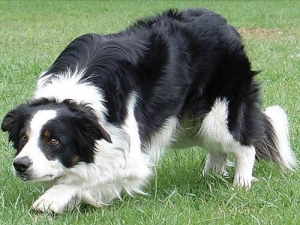I had an email recently from a woman whose father was looking to get a dog to help him on his small block.
They were thinking of getting a pup, taking it to obedience classes and then sending it to me for training when it was old enough. They were wondering what my thoughts were on breeds as they had been thinking about Border Collies and were wondering how much better (or not) pure bred dogs were, compared to mixed breeds.
It is quite a dilemma for inexperienced people; they just don’t know. The inevitable happens: they get either a Border Collie pup or mixed breed pup that usually consists of either Border Collie, Heading dog or Huntaway bloodlines. Sometimes it contains all three as well as other parentage thrown in for good measure, and the ‘breeder’ in ignorance tells the poor unsuspecting souls “it will be a good working dog”.
The new owner hasn’t read my columns where I bleat on … if you want a Huntaway get a Huntaway and if you want a Heading dog get a Heading dog and just because it is a mixture of both breeds doesn’t mean it’s going to be the handy dog claimed.
Also, a lot of people don’t realise there are Border Collies and there are Border Collies. Border Collies have been bred for years to look stunning, be companions and do tricks to amuse us, whereas the working Border Collie, bred by experienced shepherds and farmers, is a totally different animal -- not only in looks but in its whole demeanour.
Would I recommend that someone with a small farm get a pup to help them? No, unless they are experienced with herding dogs or they have a driving passion to learn and have a mentor to call on 24/7.
Maybe they will fluke it, but chances are the pup will drive them up the wall as well as running amuck with their stock or the neighbours’. Most young dogs have energy to burn and combine that with not enough work and inexperienced handlers and you have a recipe for disaster.
But in saying that, some young dogs are relatively relaxed and they can cope with being pets and some novice people manage to get it right; it does happen.
My advice to most people with small blocks is find an older dog. Often someone will be training a dog that isn’t coming up to scratch, or maybe it has started working but lacks energy and stamina for big country and big days. Instead of shooting “the gutless bastard” – it may be the perfect dog for someone who doesn’t have the pressure of big numbers, big paddocks and deadlines.
I know it’s easy to reach for the gun, but before you do, think for a moment … can this dog gather up 5 – 50 head of stock in a small holding paddock and guide them through a gate kindly? And does he have a couple of basic commands in order to control him?
If the answer is yes, then please give the dog a second chance. Trust me, there are plenty of people with small blocks who would love to have the dog and would like nothing more than a Sunday drive out into ‘real country’ to pick up their new family member.
And the dog that couldn’t cope and you hated gets to have a cruisy life as a companion, helping his new family with their livestock and is worth its weight in gold to them.
You will come out smelling of roses rather than wiping the blood from your hands.
Anna Holland is teaching people dog training. For more information www.annaholland.co.nz or Ph 06) 212 4848 or This email address is being protected from spambots. You need JavaScript enabled to view it.



















